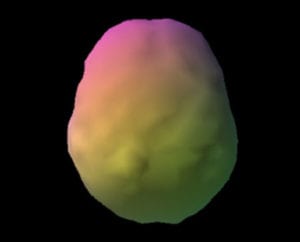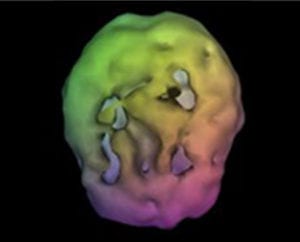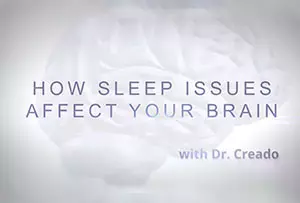Sleep Disorders
Unlike traditional psychiatry, which rarely looks at the brain, Amen Clinics uses brain imaging technology to identify underlying issues that may be associated with sleep problems.
What are Sleep Disorders?
Getting a good night’s sleep is critical for the health of your body and brain. It is one of our most basic needs, yet many people underestimate its importance. For optimal functioning, adults need 7-8 hours of sleep each night, but more than 35% of adults get less than 7 hours. Teenagers need 8-10 hours, yet only about one-third of them sleep that much. Younger children require even more to support healthy development. When kids and teens are deprived of adequate sleep, it can disrupt the release of growth hormone (and other hormones), interfere with their ability to pay attention and learn at school, and lead to behavioral problems and other issues. Not getting enough sleep on a regular basis increases everyone’s risk for mental health disorders, diabetes, obesity, relationship issues, memory and cognitive difficulties, a compromised immune system, cardiovascular problems, decreased productivity, and more.
Who is Affected by Sleep Disorders?
Approximately 50-70 million Americans have some type of sleep disorder. Nearly one-third of us suffer from short-term bouts of insomnia, the most common sleep problem. And chronic insomnia affects approximately 1 in 10 people. The rates are even higher among those who have psychiatric disorders. In fact, research shows that about 75% of people with depression have insomnia; 69 to 99% of those with bipolar disorder experience insomnia or a reduced need for sleep during manic episodes. Over half of the people with anxiety have trouble sleeping; and children with ADHD are more likely to have sleep problems than kids without the condition.
What are the Symptoms of Sleep Disorders?
Indications that you or a loved one might have a sleep disorder will vary, depending on the underlying cause, but symptoms can include:
- Excessive daytime sleepiness
- Regularly wanting to nap during the day
- Difficulty falling asleep or staying asleep
- Snoring deeply or grinding your teeth
- Frequent episodes of not breathing during sleep
- Twitching your legs or getting cramps in them
- Waking up with a headache
- Frequently having nightmares
- Flailing or restlessly moving during sleep

Over time, sleep problems can lead to a higher risk of:
- ADD/ADHD
- Cognitive and memory problems
- Dementia
- Depression
- Panic attacks
- Relationship troubles
- Suicidal thoughts and behaviors
- Traumatic brain injury/concussion
While everyone occasionally has a bad night’s rest, when it happens on a regular basis, it can lead to mental health symptoms, such as irritability, anger, difficulty concentrating, memory problems, impulsive behavior, brain fog, and others.
What Causes Sleep Disorders?
There are several underlying causes of sleep disorders, some of which are lifestyle and behavioral, such as poor sleep hygiene (i.e. caffeine intake or extensive exposure to blue light), jet lag, and substance use. Others are related to physical health issues, like chronic pain, restless leg syndrome, certain medications, being overweight or obese, and hormonal imbalances. Mental health problems such as depression, anxiety, PTSD, trauma, and traumatic brain injury are also implicated in sleep disruption. In addition, neurodegenerative disorders, including Alzheimer’s disease, vascular dementia, Parkinson’s disease, multiple sclerosis, and amyotrophic lateral sclerosis are known to cause sleep difficulties. As we age, sleep can become compromised due to a variety of factors, including the decline in melatonin production as well as that of other hormones.
Why Choose Amen Clinics for Sleep Disorder Treatment?
Since sleep disorders often occur with other physical and mental health conditions, the doctors at Amen Clinics do a thorough evaluation along with appropriate testing to get to the root of each patient’s problem(s). The goal is to get you back to restful slumber without the use of sleeping pills or sedatives—medications that brain imaging studies show can be harmful to your brain.
Sleep-Deprived Brains Work Differently
During sleep, your brain cleanses itself by eliminating cellular debris and toxins that build up during the day. These waste products include clumps of beta-amyloid and misfolded tau proteins, both of which are found in the brains of people with Alzheimer’s disease. When this natural cleaning process is impaired due to prolonged periods of poor sleep, the neural waste can build up to toxic levels, increasing the risk for serious problems. During sleep, the brain also consolidates learning and memory, and it prepares for the following day. In addition, the brain processes that occur during sleep are important for the health of your immune system, appetite control, and neurotransmitter production. A chronic lack of sleep means your brain doesn’t perform these important functions at optimal levels.

Healthy Brain Scan

Sleep-Deprived Brain Scan
SPECT (single photon emission computed tomography) is a nuclear medicine study that evaluates blood flow (activity) in the brain. Basically, it shows three things: healthy activity, too little activity, or too much activity. The healthy surface brain SPECT scan on the left shows full, even symmetrical activity. The scan on the right of someone who has obstructive sleep apnea reveals multiple areas of low blood flow that look like holes (but are not) and closely resemble the scans we see of patients with early Alzheimer’s disease. Fortunately, with timely treatment for obstructive sleep apnea, this unhealthy pattern can improve considerably.
Ready to learn more? Speak to a care coordinator today!
Contact UsTypes of Sleep Disorders
There are several different types of sleep problems that can adversely affect your ability to get the rest your brain and body need. Some of the most common sleep disorders are:
Type 1: Insomnia
Approximately 35% of American adults and 69% of high school students, don’t get adequate sleep at night. In modern sleep medicine, we don’t view insomnia as a lack of sleep, but rather excessive wakefulness of the brain. This can be caused by poor sleep hygiene or by physical or mental health conditions, such as certain medical problems, chronic pain, medications, significant stressors, depression, anxiety, and other issues.
Type 2: Hypersomnia
Hypersomnia refers to excessive sleepiness in which a person has trouble staying awake, can fall asleep at any time, and has difficulty waking up. Hypersomnia can be caused by substance abuse, depression, bipolar disorder, brain injury or tumors, and some medications and medical conditions as well as other sleep disorders, like narcolepsy and obstructive sleep apnea.
Type 3: Obstructive Sleep Apnea (OSA)
OSA is a serious sleep disorder that is caused by periods of apnea (temporary cessation of breathing) that can last from a few seconds to a couple of minutes. These events may occur a few times each hour, or in more serious cases, up to a hundred! The chronic lack of oxygen from recurrent episodes of apnea can damage and age the brain, increase the risk for stroke and heart attack, and double a person’s risk for Alzheimer’s disease.
Common symptoms of OSA include:
- Chronic daytime sleepiness
- Periods of not breathing while asleep
- Snoring, snorting, or gasping during sleep
- Headaches
- Memory and/or attention problems
- Irritability
Getting a diagnosis and treatment for sleep apnea is critical to keeping your brain healthy and preventing or minimizing symptoms of psychiatric or medical conditions. The gold standard for treatment of OSA is a continuous positive airway pressure (CPAP) mask, which delivers a steady stream of air through your passageways, preventing the back of the throat from collapsing over your airway. Some people are hesitant to use a CPAP machine because they think it will be uncomfortable, but design improvements have made them more user friendly. If you have avoided treating your sleep apnea, it’s time to seriously reconsider in order to lower your risk of serious problems. Because the brain is so oxygen dependent, untreated sleep apnea literally kills brain cells, and over time, can lead to irreversible damage.
Type 4: Parasomnias
Parasomnias are disruptive sleep-related events, such as:
- Disorders of arousal (incomplete awakening and diminished cognitive function during parasomnia episodes)
- Sleep-related eating
- Sleep terrors (night terrors)
- Sleepwalking
- Somniloquy (talking in your sleep)
Type 5: REM (Rapid Eye Movement) Sleep Behavior Disorder
Body muscles that aren’t paralyzed during REM sleep allow for muscle movement during dreams. This type of behavior can be violent and even result in injury. It often involves thrashing around at night because of a bad dream and may even lead to hurting yourself or your bedmate.
Type 6: Circadian Rhythm Disorders
This includes people who work late at night doing shift work or who travel across time zones and develop jet lag. We can help people adapt to their unique sleep schedule by altering their circadian rhythms.
“With A Better Brain Comes A Better Life”
– Daniel G. Amen, M.D.

